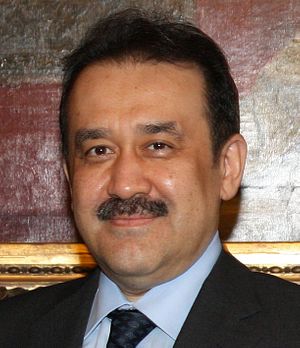According to a statement from Kazakhstan’s National Security Committee (KNB), the country’s intelligence and security service, on January 8 its former head, Karim Massimov, was arrested on January 6 on charges of treason.
Massimov had led the powerful organization until his dismissal on January 5.
As Paolo Sorbello explained earlier this week: “Massimov, like his deputy Samat Abish (who was fired on January 4), is a loyalist of former President Nursultan Nazarbayev, who ruled the country for 29 years until 2019 and hand-picked Tokayev to be his successor.”
Kazakhstan’s present turmoil is a complex tapestry, the threads tangled and obscured. Efforts to distill the events into a neat narrative are impossible and potentially damaging. Nevertheless, we must make an effort to understand what we know now, while allowing room for the great many unknowns.
Massimov’s arrest on treason charges adds to the existing complexity, but may be able to explain the dramatic shifts of the pasts week.
Peaceful protests that began in western Kazakhstan’s oil towns over a sudden hike in gas prices on January 2 spread to the rest of Kazakhstan, including to its largest city, Almaty. As the protests continued, the frustrations and grievances aired by protesters also grew. This was not in and of itself surprising. As the data (from January 1, 2018 to August 31, 2020) compiled in the Oxus Society’s Central Asia Protest Tracker demonstrates, Kazakhstan has experienced the most protests in the region in recent years about a wide variety of issues. Importantly, most of those protests were either ignored or controlled by the authorities with arrests and harassment of protesters; none erupted into riots, none involved burned buildings or cars.
So what happened in Almaty? Although most remains unclear, what is clear is that there were various groups engaged, ranging from the usual peaceful protestors to what some have described as “marauders.” In between, there’s the murky area of protestors attacked by police and fighting back, others fleeing, and reports of suspicious new groups arriving in the chaos.
Both media and the Kazakh government’s efforts to simplify the events have elicited justified frustration from Kazakhs online.
President Kassym-Jomart Tokayev blamed gangsters and terrorists in an English-language Twitter thread, some of which was later deleted or removed (including a tweet identifying 20,000 terrorists as responsible and another stating “we must kill them”). That statement came in tandem with an order for security forces to “shoot to kill without warning.” Human Rights Watch urged the government to cancel that order, stating that the authorities “should do their utmost to protect human life and should only use force, in particular lethal force, as a last resort.”
“Assemblies are often diverse gatherings, and participants do not lose their individual rights simply because some are behaving violently,” Human Rights Watch also noted. Their report provides a detailed timeline of events.
A likely reality is that underneath the swell of protests in the streets, Kazakhstan’s opaque elite political circles made their moves: Massimov’s arrest on treason charges suggests that whatever power play he was a part of has failed (Eurasianet has more on this). What transpired is not fully understood yet, and that’s one of the problems when politics occurs in the dark rather than at the ballot box.
































